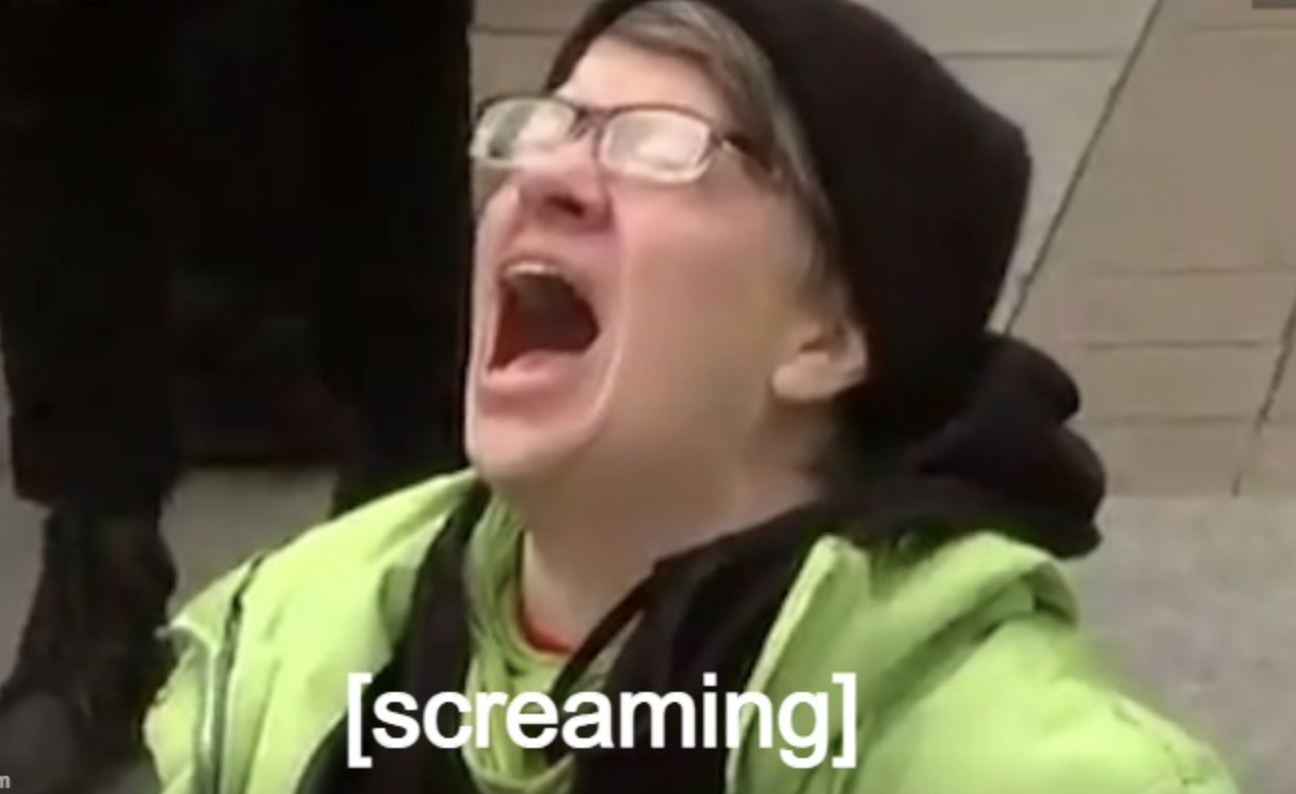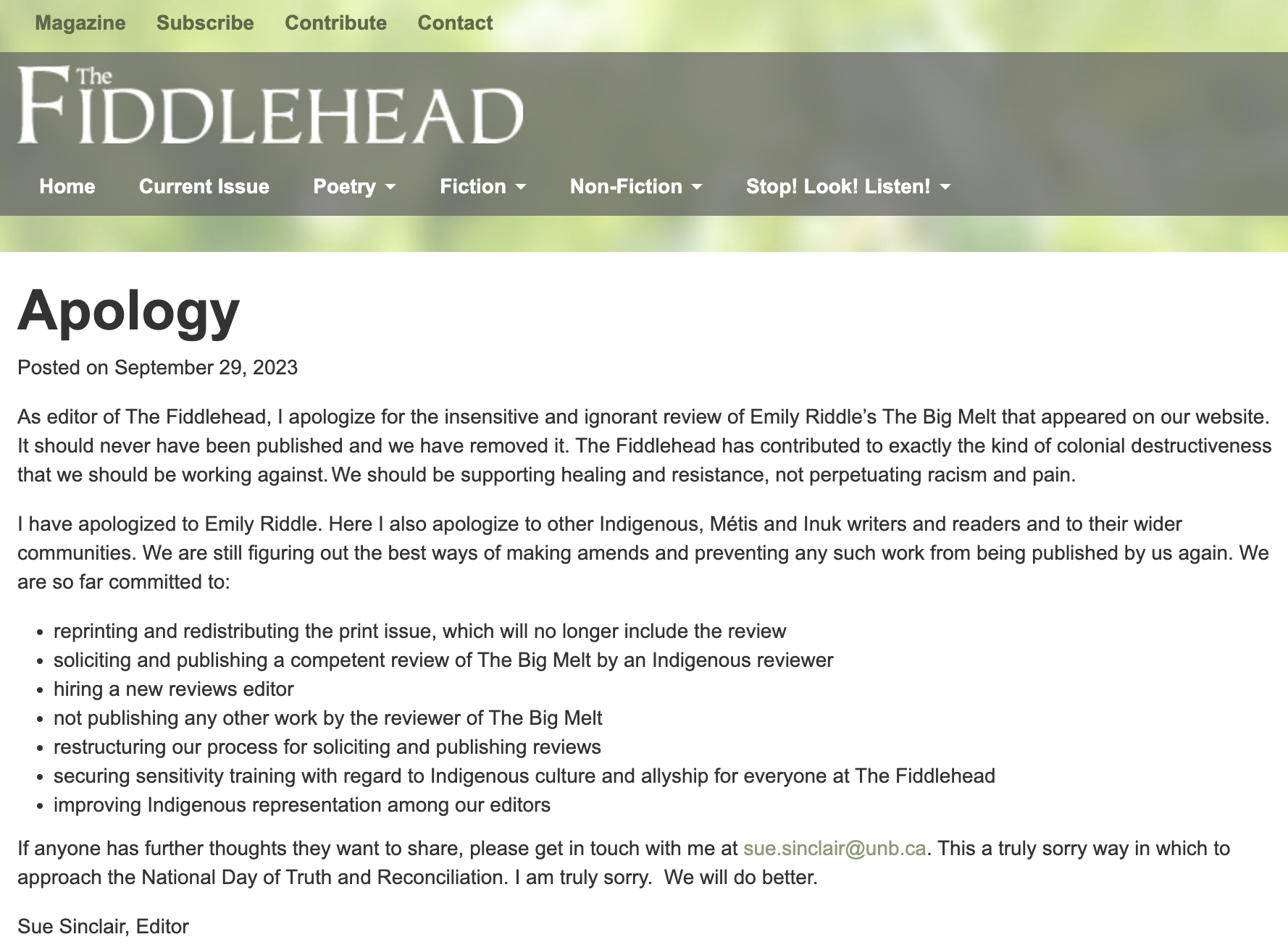Brent van Staalduinen is the author of the novel SAINTS, UNEXPECTED (Invisible Publishing). His short stories have won The Bristol Short Story Prize, the Lush Triumphant Literary Award, the Fiddlehead Best Short Story Award, and have appeared in Riddle Fence, The New Quarterly, EVENT, Prairie Fire, The Dalhousie Review, and elsewhere. He lives in Hamilton and teaches creative writing at Redeemer University College. Follow him on Twitter (@brentvans) and online at www.brentvans.com.
As I read “Those Days Just a Glimmer” in Fiddlehead No. 273, I kept tripping over a name. Your story about private security contractors in Kuwait included a character named Tillman. I could not separate your Tillman from the NFL-football-player Tillman who joined the army after 9/11 and died in a friendly fire incident in Afghanistan. Tillman, his story, his appearance, and his famous last words certainly evoke a wild, ultra-patriotic, gung-ho, all-American vibe. If your usage of the name was more than coincidence, what were you going for there?
Interesting! The name wasn’t an intentional nod to the US soldier, although I’m not sure I can call it coincidence, either—I follow the news pretty closely, so I wonder if it subconsciously slipped in there. That’s some seriously close reading, Oscar, and I’m appreciative of your thoughts.
I see you’re using em dashes to indicate direct speech. I do this as well, and usually it’s not a problem, but every so often an editor takes issue with it. If you use quote marks, you never get any resistance. If you want to use some other method of indicating direct speech, you might have to explain yourself. So explain yourself!
I first became aware of the technique while teaching Alan Paton’s Cry the Beloved Country to high school students. I’m sure I’d encountered it before, but I was struck by how distinct and attractive it was and how economical it forced the writer to be while penning dialogue. I’ve always been spare in my writing of dialogue—I think it should reflect the way people actually speak, which is most often in short bursts (especially when the subject matter is urgent). Em-dashes (or no quotes at all, a technique I’ve also used) tend to push dialogue to its sharpest and crispest presentation, which has worked well for me. That said, I’ve also encountered resistance while using the technique, so these days I find myself using quotation marks more and more, especially for submissions where I know the journal or judge seems to favour the more standard approach. I used to be more dogmatic about it, but it really is just another tool in my writer’s toolbox to use or ignore as needs be.
You taught in Kuwait for four years. This certainly explains the very believable and insightful descriptions of the place and its people, but it doesn’t necessarily explain your equally believable and fascinating portrayal of security contractors working there. What was your source material for these characters?
My knowledge comes from a mishmash of sources: watching rich Kuwaitis move around with private security personnel, my own military service, film, still-serving friends, lots of reading, as well as a good dose of imagination. I make a lot of stuff up.
I’ve heard stories from Navy personnel stationed in the Gulf, and everything about that region makes me uneasy, from the political and military games played over oil and gas, to an economy based on a single commodity, to the huge gap in wealth and general living conditions between the top 0.0001% and the much-abused base of foreign labour. The dependency on oil seems the most worrisome. If the oil fields dried up, or if the oil were left in the ground due to global warming, wouldn’t the region collapse into war, with various groups sweeping in to capitalize on the chaos? During your time there, did you notice any attempts to diversify the economy? What kind of future could work for Kuwait and other major oil producers?
Like many of its neighbours, Kuwait is a new country held together by vapours, relying on disappearing oil reserves, stockpiled cash, tribal alliances, conservative religious views, and the ever-present interference of Western government and corporate interests. Unlike a few of its neighbours, though, Kuwait doesn’t seem to be looking beyond oil—I am admittedly now a few years removed, but I’d bet a Starbucks coffee that “Allah will never let the oil run out” remains the government and religiously-sponsored refrain. My prediction is that when the oil runs out, so, too, will the money and Western protection, leaving tribal and religious interests to fight for dominance.
You’ve had great success with contests. When you finish a new story, does it go to contests first or regular submissions? Do you think contest wins are more beneficial than regular publication? Did winning an international prize like the Bristol Short Story Prize have more of an impact than your domestic wins? What’s your source of information about contests?
I use a mixed approach. Some stories are written specifically for contests (I try to enter at least one into the CBC competition every year, for example) and have specific word limitations. Others are just written for the sake of writing a story. Where they end up first depends on the style and word count requirements of a contest or particular journal.
In terms of benefits, contests are fantastic because they have a bigger payout and can have great exposure, like the Bristol Prize. I wouldn’t say they’re better than regular publication but merely a different path towards getting paid and published. That said, the key is to submit the best work regardless of the destination: editors and jurors are fallible and subjective humans, so the only essentials are to 1) write effective and polished stories, and 2) become best friends with rejection and have no expectations about results. And keep at it. In my experience, high quality writing will almost always find a way.
To find contests, I use Google, Duotrope, Submittable, Literistic, and subscribe/follow as many good sources on social media as I can.
I’ve never seen a writer with so much success in conventional publishing who also self-publishes. What of the stigma of self-publishing? Have perceptions of this changed? Are there certain types of projects that are more suited to self-publishing?
My first self-published work was Make Fire in the Desert, which I created so people back in Canada (family and friends) could read what I’d been publishing in Kuwait. It was fun to do, as I enjoy layout and design, so I decided to do the same for a number of short stories that were languishing in real and virtual drawers, which turned into two books, A Cool Indian Name and Finding December. I never really expected to do much with those books—and indeed they haven’t done much at all—and I was actively seeking traditional publication for my newer work at the same time.
Self-publishing, when done well, can be an incredible opportunity for work to get out there, regardless of genre or form. Unfortunately, self-publishing’s stigma is an earned one: the vast majority of self-published work you can find online is low-quality, amateurish crap.
Thankfully, there are exceptions, and the industry does have its jewels. There are writers who can purely exist from their self-published work, and more power to them, if they put in the time and effort. (When I say “done well,” I mean quality base writing, effective and professional editing, professional layout and design, and forward-thinking promotion.) Occasionally, one of them crosses over to the traditional mode, a notable example of which would be Rupi Kaur, who has crashed the literary scene with her work. Literary books are a harder sell for crossover, but I applaud excellent works like Rachel Preston’s The Fishers of Paradise that get recognized, scooped up by a traditional publisher, and exposed to the traditional reading market.
At some level of popularity or fame, would it make sense to switch everything to self-publishing where you can exert more control and keep more of the revenue from sales? I’m thinking of Louis C.K. who sold tickets to his show on-line, cutting out ticket agents and scalpers. He also sold downloads of his show for $5.00. By removing the giant middleman apparatus, Louis created a direct link between himself and the consumer, keeping the price low and profits high. Do you think this is something that could gain traction in the publishing world?
Maybe, but few writers can claim even a fraction of CK’s fame or exposure. Dave Eggers, a notable writer, did dabble in producing and publishing his own work, but last I heard he’s back with one of the major houses. The rest of us mortals don’t often get such attractive choices.
Make Fire in the Desert, a self-published book about your time in Kuwait, is currently “Out of Print ” on Amazon. Are you sold out? Is there not enough demand to justify another print run? Isn’t it possible to print copies in small batches? What is the status of this project? How would someone get a copy?
All three sef-pubbed books were print-on-demand, so every time one was ordered, it was printed from scratch by CreateSpace. I retired all of the self-published titles last year, although I have kept a few copies for my own records. I’m told I can reactivate them at any time but in truth I can’t see that happening—they were fun to make, but now that I’m starting to get some traction in the traditional realm, I realized that they don’t really speak for me or my writing any longer.
Judging from your website and your credits, you’re very busy. How do you do it all? That question is often viewed as offensive or at least annoying when asked of a woman, but I think it’s fair to ask of any productive person when any one category (spouse, children, teaching, writing, promoting, blogging) could be a full-time job on its own. What secrets of time management do you employ?
No secrets, really, other than stubbornness combined with the knowledge that my stories and books aren’t a-gonna write themselves. I set my alarm at 5am every morning so I can carve out (and guard) regular creative writing time. I come upstairs at 7am to help getting the kids up and off to daycare and school. Any remaining daylight (when I’m not working at the library, which I do part time) is spent on admin work, which means marking, teaching prep, emailing, website maintenance, etc. I occasionally mark after the kids are in bed or on a weekend, although I try not to—family time is precious. One of the best pieces of writing advice I’ve ever received was to never wait for anything too long and always have a next project on the go, because the publishing world is glacially slow; as a result, I’m always working on something.
Of all your activities, credits, and contest wins, what has been most effective in promoting yourself? What’s next as far as social media platforms? Which platform is most suited for writers? I’ve purposely avoided Twitter as I feel it provides the best opportunity for writing something I’ll immediately regret. Covfefe!
The most tangible feedback I’ve received is from launching the novel, when I toured Ontario and BC and was able to generate some great momentum from that, in person and from people reaching out afterwards. I’ve had some nice comments about my website (www.brentvans.com), which I appreciate because these days I think it’s important to have an attractive and effective online starting point. I use Twitter and Facebook, although I find social media more of a rage-inducing time-suck than anything else, due to the incredible volume of idiots screaming and refusing to listen to each other. I know a few people who use it well, but I can’t dedicate the time to as much self-promotion as I’d like, and so it is what it is.
Writers I interview fall into two groups: those who fully embrace everything digital and those who reject it completely. It’s getting to the point where not having a Facebook page or a website is a little like not having a phone number. Pseudo-Luddites can go all J. D. Salinger if they want, but I don’t see the value of making connection difficult. Do you ever feel your online activity is starting to crowd out hours you’d rather devote to off-line creation?
Yes, definitely. It’s a tool, like anything else, but I frequently (and unpleasantly) find myself giving moments and minutes and hours away that I’ll never get back. Especially when I let myself venture down the #hashtag-hole. #Covfefe, indeed.
Research indicates that excessive smart phone usage is causing reduced attention spans, a reduction in memory, and serious addiction. Even if you realize it’s a problem, it’s hard to swim against the flood. Will we come to a moment of significant pushback in all things on-line?
Everything moves in cycles, and it feels like lots of people are reaching a saturation point. I certainly hope it settles down and we figure out how to be smart and creative again, and away from our screens. (He says while staring at a screen, typing away.)





Enjoyable interview! Every question was about writerly stuff that interests me. A personal observation on contests: I enter and that immediately triggers an announcement to be sent out stating, “We’re extending the deadline!” My PayPal account giggles and shakes its head.
Thanks! Yes, I’ve always wondered about those extended deadlines. Is it an attempt to get more cash? to cut procrastinators some slack? or are they unhappy with the number of submissions they’ve received?
Excellent interview. As for famous authors doing something like Louis CK did, I’d thought that Stephen King did something like that, but I can’t manage to find a reference to it online now. Perhaps I misremembered. Also, as for the practice of using em-dashes instead of quotation marks like a civilized writer — don’t you find that they make the page look ugly:
“Lorem ipsum dolor sit amet, consectetur adipiscing elit, sed do eiusmod tempor incididunt ut labore et dolore magna aliqua. Ut enim ad minim veniam.
— Hey dude
quis nostrud exercitation ullamco laboris nisi ut aliquip
— I said hey.
ex ea commodo consequat. Duis aute irure dolor in reprehenderit in voluptate velit esse cillum dolore eu fugiat nulla pariatur. Excepteur sint occaecat cupidatat non proident, sunt in culpa qui officia deserunt mollit anim id est laborum.”
I think the only viable choices are using quote marks, or not using anything at all, a la Cormac McCarthy.
“Wayne”
Thanks, fella. Stephen King did do something like that a long time ago, IIRC. I think he tried selling access to a short story for $5.00? It happened so long ago that it is not sufficiently documented on the web, said the guy who barely looked. And he made more money doing that than if he had published it in The New Yorker, the writer said, once again guessing at the facts. It works if you have a huge name, as we discussed. Your misguided hatred for the lovely em-dash is noted. I will meet you half way and consider no markings at all, but I think that might be confusing for many readers.